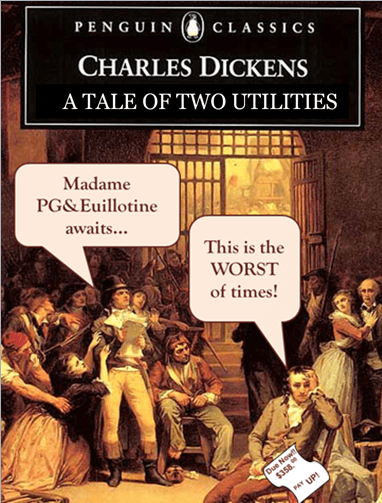It is the best of times (if you have solar), it is the worst of times (if you don’t). Here’s a bedtime story we think you’d like to wake up to:
Rich and Paul Mann are brothers and next-door neighbors. They’re both married, two kids, two cars, and a mortgage on their 1800 square-foot homes. They have the same annual income. Ten years ago, an average household electric bill for Rich and Paul was around $180.
That Was Then, This is Now
In May 2008, Rich installed 24 solar panels on his home. He didn’t have any cash available at the time, and opted for a comfortable payment program. The job took two days. The paperwork took two hours. The power was out in the home for two minutes. Paul was going to give Rich a hard time about the work being a hassle, but the installation crew was gone before he got the chance. All he had time to do was mutter something about Rich getting into ‘all this new-fangled technology.’
The next month, Rich’s payment on his solar array was $161. His electric bill was $12; a total of $173. Paul’s bill was $198. In June of 2015, Rich finished making payments on his solar, so he paid $0. Zero. His electric bill was $4. Paul’s was $310.
Fast forward to June of this year. Rich still expects many years of high performance from his solar system, and his electric bill was $2, while Paul is still going the other direction, peaking at $371 for virtually the same voltage he’s been using for the last 10 years. These days, it’s called ‘trending’. Paul is trending in a bad way.
What’s the Difference?
Both men still live in the same houses with identical income. But Rich Mann’s home has a new kitchen and later-model cars in the driveway than Paul’s. The front of the house, back of the house, and inside of the house have all improved because of what’s on top of the house.
Rich takes every Friday and every December off from work. Paul’s working more hours than ever just to keep up with rising electricity. The only difference? Rich installed; Paul stalled. The names in our narrative have been changed, but the people and the numbers are real. What would you do, if you were a Rich Mann? -Lee Stilwater

